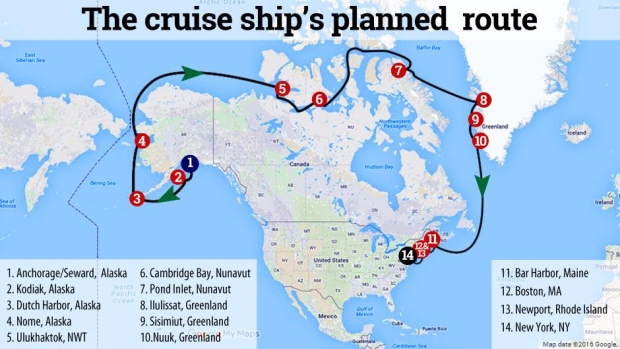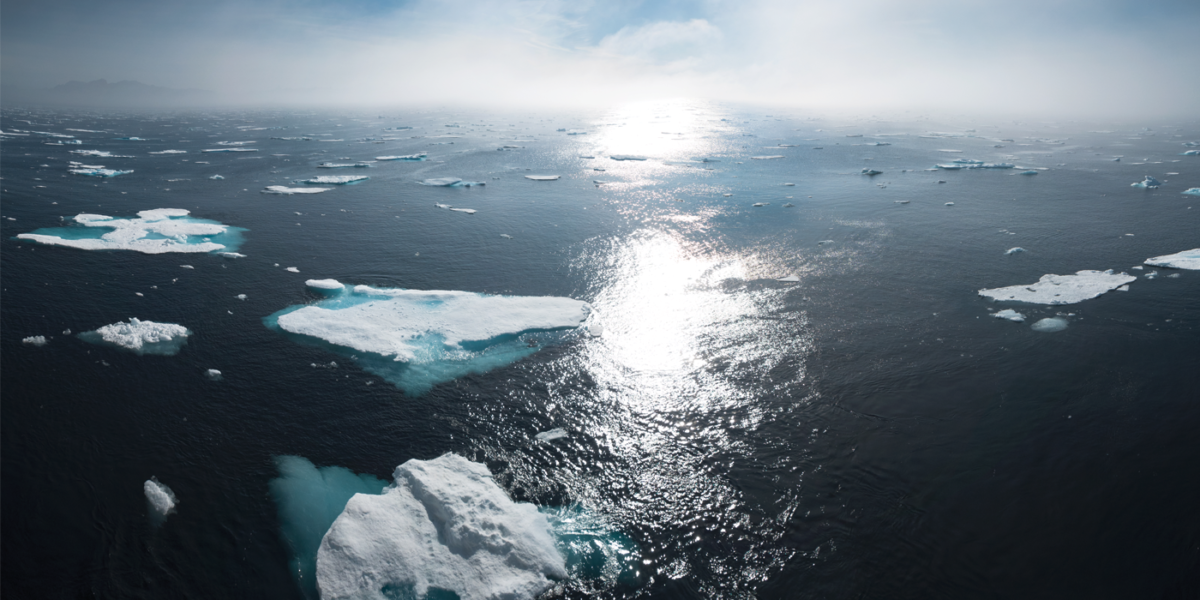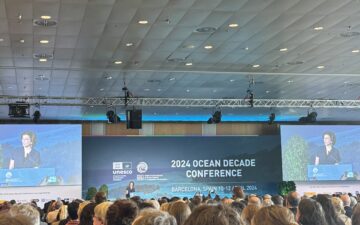This week the first cruise ship set sail for a trans-Arctic voyage, coupled with headlines that proclaimed the lowest level of Arctic sea ice recorded in the past 125 years. A three-week cruise requires a big logistical leap at the best of times—in the Arctic, it required months of planning and consultation with the US Coast Guard and other government agencies. Other than the effects of noise pollution and other impacts, cruise ships don’t appear to be an issue that might generate future conflict as Arctic waters warm—but anticipating conflict and seeking to resolve it in advance is one of the goals of the Arctic Council. I asked our Board member Bill Eichbaum who is an expert in Arctic issues and actively engaged in the Arctic Council process to share his thoughts.
Mark J. spalding

Among the most dramatic impacts of global warming is Arctic change, including the unprecedented melting of ice and snow, loss of habitat for globally unique species and threats to centuries old patterns of human livelihood. At the same time, as the Arctic becomes more accessible and the global thirst for natural resources continues, there is a rush to exploit the resources of the region.
The popular press has been keen to raise the specter of possible conflict among nations as this newest wave of resources exploitation accelerates. These concerns have been further exacerbated as tensions have increased between NATO countries and Russia over Ukraine and other geo-political issues. And, in fact, there are several examples of Arctic countries increasing military presence in their Arctic territories.
However, I believe the Arctic is unlikely to erupt into a new zone of conflict as nations pursue development of its resources. Quite the opposite, there are few instances of dispute over actual territory with the most significant ones involving only Canada and the United States and Denmark. Furthermore, the much remarked Russian claims regarding the Arctic Ocean seabed are among efforts of most Arctic nations to make similar claims. These are all subject to determination and resolution pursuant to the provisions of UN Convention on the Law of the Sea. It is ironic that the failure of the United States to accede to this convention means that we are apparently unable to perfect such claims.
On the other hand, even a more accessible Arctic region will continue to be a dangerous and difficult place in which to carry out complex economic activities. For a variety of reasons this means governmental cooperation in governance is essential to provide the platform for such activity to move forward in a manner which is environmentally, socially and economically sustainable.
Since 1996, The Arctic Council consisting of the eight Arctic countries, permanent participants representing indigenous people, and observers has been the focal point for developing the science necessary to meet this challenge. Under the leadership of the US Government, currently the Chair of the Council, a Task Force is considering stronger measures to assure that the recommendations of the Council are implemented. In a recent paper published by The Polar Record I addressed issues key to strengthen Arctic governance, especially in the marine environment. At this juncture Arctic countries, including Russia, are positively exploring options for achieving such cooperation.
This summer a tourist vessel with over a thousand passengers is crossing the Canadian arctic, including through seas where a ship one tenth that size recently ran aground, requiring evacuation of all passengers and crew. After the summer of 2012 Shell aborted future hydrocarbon exploration in the Bering and Chukchi Seas following numerous accidents and miss-steps, but development continues elsewhere in the Arctic. Even now, distant water fleets are moving ever northward in pursuit of fish. Unless the Arctic countries can develop strong mechanisms for cooperation on governance of the region, these and other activities will be as destructive of the natural world as has been the case elsewhere. With strong cooperation, they can be sustainable not just for the natural resources of the region but also for the people of the Arctic.







